Unveiling The Great Thinker
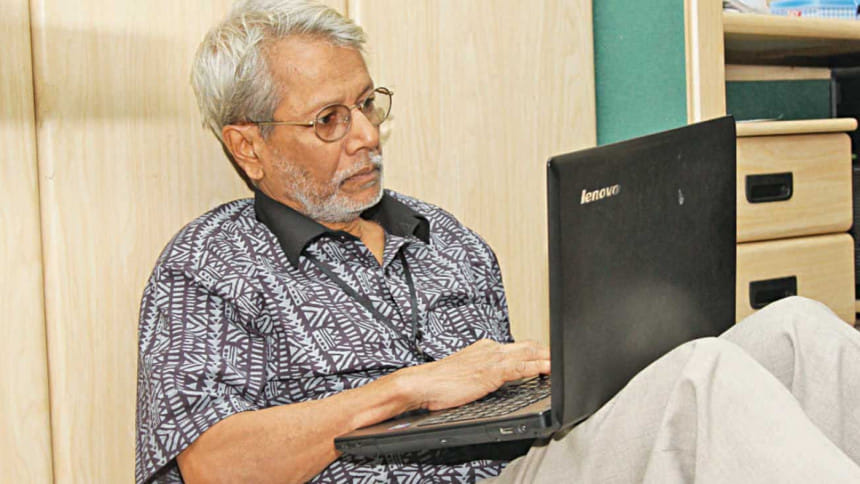
Professor Dr Nizamuddin Ahmed has been writing for the Star Magazine with the pseudonym Chintito. His witty and thought provoking articles have been nourishing our readers mind for more than 18 years. This week The Star reveals the amazing story of this thought leader through a detailed interview. Professionally Dr Nizamuddin Ahmed is the former dean, faculty of architecture and planning and former head of department of architecture, Bangladesh University of Engineering and Technology. He has completed his PhD from University of Sheffield, Sheffield, England, UK. He is also the Charter President, Rotary Club of Dhaka Urbana and Asst. Leader Trainer, National Commissioner, Bangladesh Scouts. He is the founder of the GERAMfERA initiative and the CEO and Managing Director of BASHABARI architects.
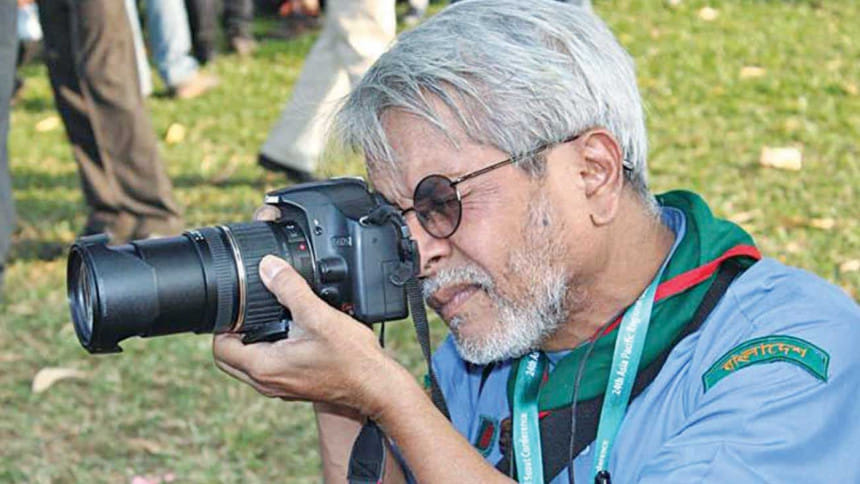
With your pseudonym Chintito and humorous and thought provoking articles you have created quite a stir. How did you start writing?
Actually my writing career began as a sport journalist which was quite a different start up for a teacher of architecture of the country's largest engineering university. But I was an avid sportsman in my youth. I also participated in the Scout movement and won the Silver Tiger award (the highest award). From my enthusiasm I launched Bangladesh's first sports magazine Krirangon in 1972. Then I committed myself in sports reporting and editing the magazine. But one fine morning I got a call from the editor of The Daily Star, then an emerging newspaper, to join its sports section as the editor. I was hesitatant but then actually was 'forced' to join and lead the team. Thus I entered into The Daily Star family to which I am still connected by heart and by my pen. Besides working for The Daily Star I was also teaching at the Bangladesh University of Engineering and Technology. When I got the responsibility of the Dean of architecture faculty, I realized that it would become difficult for me to continue both the job simultaneously. So besides serving the university, I started writing editorial articles for The Daily Star. I started writing with the pseudonym Chintito and the name of my column was “Pinch of Salt”.
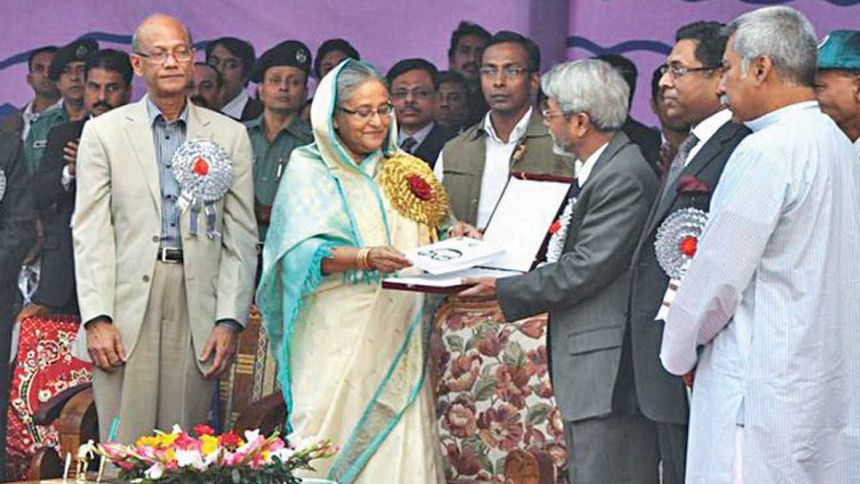
You have been writing for the Star Magazine from the very beginning. How has that experience been?
One day in 1996, Mahfuz bhai (Mahfuz Anam, the editor and publisher of the Daily Star) told me, “Nizam we are going to launch a Friday magazine and Aasha will be its editor. Why don't you send your articles for the magazine from now on? She will not correct your pieces but she needs to know what you have written for the magazine.” I was actually a bit confused about what was going on. But when I met the magazine editor and started writing for her I started to feel like that the magazine was the appropriate place for my pieces. Thanks to Aasha's encouraging cooperation, I have been writing for the magazine for 18 years or more. She has been an inspiration for my writing. In fact when I write, I don't think about my readers rather I often think Aasha will be reading this article.
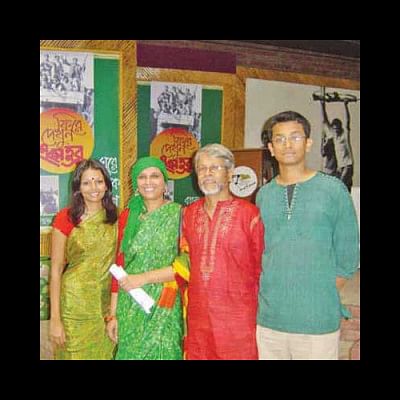
How did you come up with your pseudonym Chintito? What was the idea behind it?
Actually the word Chintito just came to my mind. I wrote my very first article with this pseudonym. I was shy about writing articles for the newspaper and expressing my thoughts publicly. That is why I chose the pseudonym. But when somebody asks me, “Are you Chintito (concerned)? What are the things you are so concerned about?” I reply, “Yes I am concerned. Everybody in Bangladesh should be concerned.” But I actually try to explain the harsh realities in more accessible, humorous and sometimes in a bit satirical way. We have newspaper reports to get firsthand accounts of the real life incidents. But to make people think deeply about its social impacts I try to engage them in my writing by making it simpler and a bit witty.
You have participated in the liberation war of 1971. How did that influence your writing?
Like many others of that time the year 1971 is one of the most eventful years of my life. At that time I was a student of 12th grade at Jhenida Cadet College. But when the war broke out I was staying with my parents in Dhaka. I was connected with my friends who decided to join the war. So with some of my friends I fled from my house and crossed the Indian border. I received training at Melaghar and participated in the war at sector 2. Sadek Hossain Khoka, former mayor of Dhaka City Corporation was one of my comrades. I took part in preparing and guarding defensive positions at Kasba. In October we started to March towards Narsingdi and from Narsingdi we started for Dhaka to attack Pakistani establishments. On the way one of our comrades fell severely ill. I was told to look after him and stay back. Then I was told to take him to Dhaka.
When I reached home my parents turned emotional after getting me back. After a few weeks my parents sent me to my aunt's place in West Pakistan to ensure my safety. I was forced to go and could not say no to my parents at that time. But I could not stay there for much longer. I managed to gather a couple of friends and again fled from my aunt's place. This time my destination was Kabul, Afghanistan. We hired a guide with 1500 rupees for crossing the border. After weeks of journey on foot, donkey and horse caravan we reached the historic and scenic Khybar pass. The guide helped us to cross the border and after crossing the border it took us some more weeks to reach Jalalabad in Afghanistan. There at first we went to the Indian Embassy. They gave us shelter and transported us to Delhi. Then with the help of the Indian government we entered into free and independent Bangladesh through the Benapole border.
My participation in the liberation war was brief but I have witnessed and experienced the struggle and oppression during that tumultuous time. This is why I can't resist myself to write to revive the spirit of the liberation war for which we have struggled so much. Currently I have been writing a novel on that period.
You have taught in one of Bangladesh's best institutions for 31 years. There you have got the opportunity to interact with some of the brightest youth of Bangladesh. What is your message to our young generation?
Yes, I have got the opportunity to interact with the young generation of Bangladesh throughout my teaching career. My message to our youth is very clear. I have always advised them to speak out and stand for truth. I always tell my students to practice truth in their personal lives. One of my observations regarding our young generation is our youth are introverts and feel shy about expressing themselves. I have always told them to stand up and speak out. I have told them that there is a Bangbandhu or Mahamta Gandhi among you. But to do that you must speak and stand for the truth. In this age of information technology, it is much easier to distort the truth and establish a lie. But it is our younger generation who must break this network of lies.
We have in our country some of the brightest and promising young people of the world. But it is our failure that we are not providing them with opportunities to utilise their talents in this country. Every year a huge amount of them go to different parts of the world. But
I always advise them to return to Bangladesh and serve the country. If everybody shrugs off their responsibility to the country and starts a career abroad, who will build Bangladesh?
You have also committed yourselves in community development and charitable works. Could you tell us something about your initiatives?
As an architect Dhaka's urban infrastructural development has been one of my topics of concern. From this point, while working for The Daily Star I had started a movement called Agenda for Urban Concern. The Daily Star also published a monthly page with the name The Daily Star Agenda for Urban Concern which I had edited. I engaged government organisations like Dhaka City Corporation, RAJUK and many other interested NGOs to the movement. The goal of our activities was to raise awareness among the citizens of Dhaka to make it a cleaner and safer city. But later as I got more engaged in my university and other activities, the movement fell asleep.
Currently I have been working for my initiative GRAMfERA LTD. Its elaboration is Global Education, Research, Awareness & Motivation for Empowering Rural Areas. My wife Dr Zebun Nasrin Ahmed and son Dr Rasheduddin Ahmed, both teaching in BUET, have been assisting in this initiative. My daughter Eeman Nasrin Ahmed has also been a great co-worker in all my initiatives. Through this initiative, my goal is to transpire economic empowerment in the rural communities without destroying the eternal natural beauties of rural Bangladesh. It's also about making our rural people more conscious of natural and environmental resources of our country.
I have also many publications on architectural sciences and public safety. Recently I have published a Bengali book called “Agune Nirapotta” or “Safety in Fire” where I have described detailed features of safety measures that a building or industry should adopt.
What is your unfulfilled dream?
I have been writing for decades. Still I am writing and I will be writing. But I have a vision to make some of the writings into television serials, documentaries or something like this. What I think is that, our people, mostly the rural population, are more interested to accept the message when it comes to them through visual medium. It has more appeal than any other media. So I have been working to adapt some of my writings for the television screen.
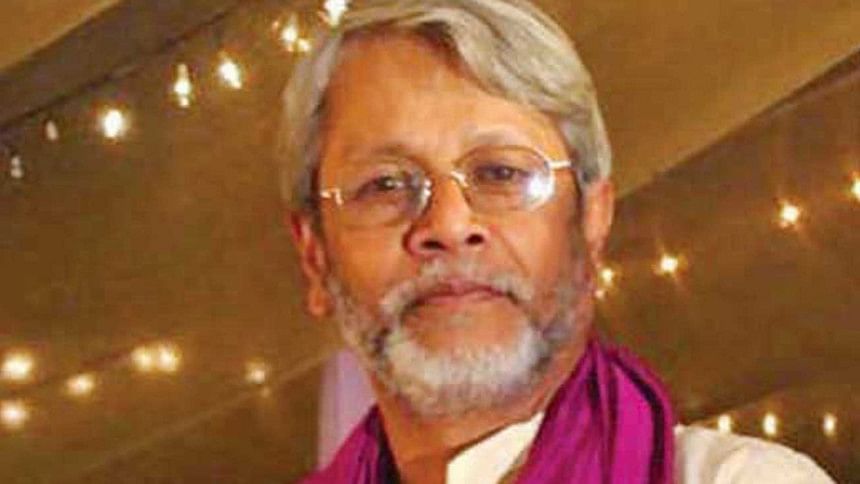
! Dr Nizam achieved the Bangladesh Sports Writers Association Award in 2009
! He received The Rotary Foundation District Service Award in 2002-03
! Dr Nizam has been awarded Silver Tiger, the highest award conferred by Bangladesh Scouts
! He has published numerous research papers on architecture and authored five books.

 For all latest news, follow The Daily Star's Google News channel.
For all latest news, follow The Daily Star's Google News channel. 



Comments